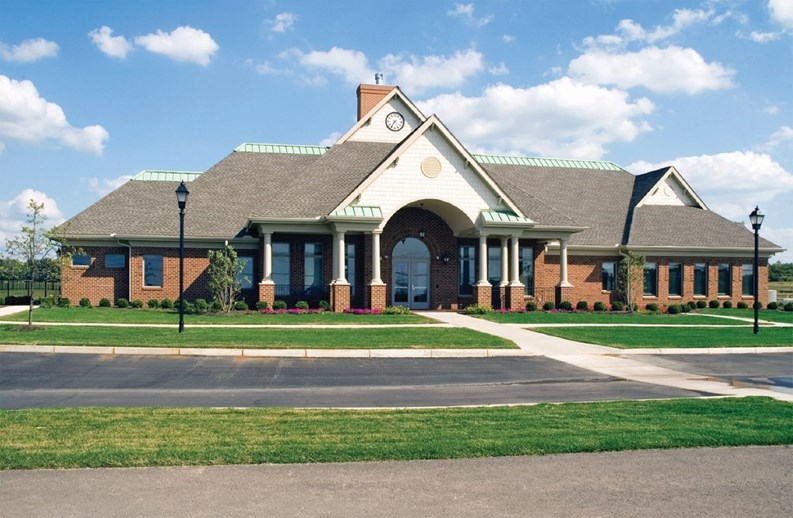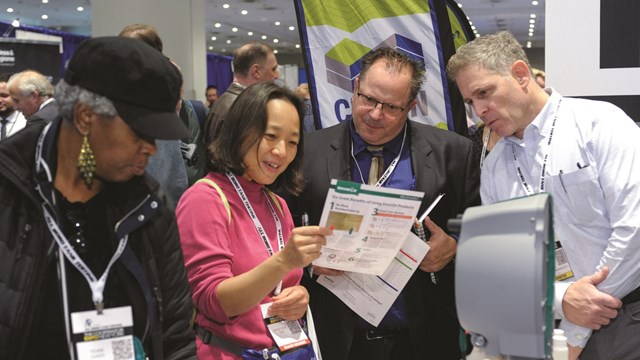Tennis courts, event spaces and private swimming pools are practically standard issue when it comes to suburban homeowners associations and condominium communities. While the residents who enjoy these amenities as part of their ownership generally use them solo or in the company of friends and family, some associations occasionally make their facilities available to rent for private events, such as a wedding reception or a work meeting. Renting out a clubhouse or other community amenity can be a useful source of revenue for HOAs looking to make some extra money, but it also raises issues of access and liability.
Coverage is Crucial
Whether a community cashes in—or cashes out [see sidebar]—by renting out its amenities or other facilities for a fee largely depends on the size of the association, the types of amenities involved, and how those amenities are defined and operated. When condo developers promote boat basins or an in-house spa as homeowner perks, those facilities are generally operated by an outside company completely independent of the homeowners’ association itself, and thus not at a board's disposal as revenue generating entities.
By contrast, something like a clubhouse or community room is a standard amenity for most HOAs, and associations usually have full control of these areas and may exercise options when it comes to how they're used. For the most part, HOAs tend to maintain these amenities for resident use only. Bernie Gitlin, president of Massachusetts-based Global Insurance Network explains why associations may opt out of renting their common facilities.
"I have seen some communities rent out to the general public,” he says, “but this could get a condo association into the rental hall business, which opens up a lot of other issues," like serving alcohol on the premises, for example, and the liability considerations that raises. Gitlin stresses that it's vital to consult with your insurance carrier before letting any outside people use your HOA's facilities for any purpose.
For any community considering renting their clubhouse or other amenities, legal professionals stress the importance of having an attorney review the association's governing documents to make sure renting is even allowed, and also making certain that the proper insurance is in place before any rental agreements are made. An HOA's insurance company will routinely supply coverage for the association's fitness center, pools and function spaces, but sometimes, when parties, classes or other events are held in a common area, outside vendors take on the responsibility, with their own insurance, licensing or permits. For example, Gitlin cites a community where yoga classes were offered in the clubhouse, "And the instructor had her own insurance that covered her classes wherever they were held.”
This is similar, he adds, “to having an outside vendor operate a snack bar by the [community’s] pool. The vendor would have the appropriate insurance or permits. It’s not the association that’s in the business of food service.” He notes that associations can make some revenue from their facilities with vendor or user fees, "But it’s only worth it if you can control it,” he says.
"The association should require that the individual renting the clubhouse obtain insurance to cover the event, or, alternatively, to pay the association the extra insurance cost imposed by its insurance carrier," says David R. Dahan, Esq., a shareholder in the Community Association practice group of Parker McCay in Marlton. "From a legal point of view, I would recommend that the association require the individual to obtain his or her own insurance, though that may be easier said than done. The only feasible option may be for the association’s insurance carrier to provide coverage and to pass any extra charges to the individual renting the clubhouse. However, any claims submitted to the association’s insurance carrier related to such use will typically be reflected as part of the association’s ‘loss history’ which is used to calculate premiums in the future.”
"There are many other details that need to be addressed as well," Dahan continues. "A detailed rental contract should be adopted. This contract should specify the rights and obligations of both parties. Most importantly, the contract should state that the individual renting the clubhouse is fully responsible for any claims and damages arising from such use and that the individual will indemnify the association for any claims and damages for which it may be found liable in connection with such use."
It may also be prudent to require that a partially- or fully-refundable damage deposit be paid up-front by whomever is renting the space. The bottom line, in Gitlin’s opinion, is that “The board of directors or the management company must take a risk-management approach to facility rentals. If fees are charged, they should determine if it’s enough to cover costs… or pay for extra insurance. You should find out if your insurance policy already covers” the use or activity that’s being planned.
Rules and Residents First
According to Dahan, “It's common for a master deed or bylaws of an HOA to permit the board of trustees to license or lease property rights with respect to their common elements. Furthermore, the statutes that govern a not-for-profit corporation such as a homeowners association, specifically allow a corporation to lease its property and assets, subject to any limitations provided in its certificate of incorporation or bylaws."
According to one property manager, for a condo association to rent its facilities to non-residents—to the general public, in other words—is rare, partly because of the liability exposure such a practice entails, but mostly because there simply isn't enough outside demand to amke it worthwhile. “Even in a large community, the event space might get booked for private events five or six times a year,” he says. “The ability to reserve the clubhouse or other common areas therefore serves more as a perk for residents than a money-maker.”
In associations that do allow outsiders to rent common elements, adds Dahan, it's important that residents get first dibs. “It's important to remember the right of homeowners to use the clubhouse," he says, "and HOAs should consider a policy giving homeowners preference."
It's also important to adhere to safe use standards, regardless of whether the people using a particular facility or amenity are association residents or not, says Richard J. Fry, PCAM, a New Jersey property manager. Rules must be clear. "For any amenity that exists, there should be clear use regulations and restrictions, whether they relate to age, clothing, behavior or something else," says Fry. "The rules should be clearly outlined and posted visibly at the entrance, and also published on a regular basis. Ambiguous rules and regulations could lead to exposure to risk." For example, Fry notes that many boards prohibit alcohol in pool and clubhouse areas, but do not explicitly state that alcohol is not permitted. If the rule merely states "no glass containers," residents will use that ambiguity to their advantage and transfer their alcohol to plastic containers, he says.
In large communities with major amenities like marina docks or golf courses, memberships for those facilities may extend to non-residents. As previously mentioned, operations of these recreational entities are usually handled by professional management companies, with the residents’ association having little or nothing to do with them. They become amenities that benefit association residents without actually being under the aegis of the condo administrators.
The golf complex at New Seabury on Cape Cod, a luxury condominium community in Mashpee, Massachusetts, includes fitness facilities and even lodging—about 20 condos are rented to the general public. And the Popponessit Inn is a major restaurant, bar and function area available to anyone. None of these amenities have any connection with New Seabury’s residential association, the Peninsula Council, which self-manages all 1,400 of the community's housing units and oversees a number of subcommittees and different "neighborhood" boards. Although the golf memberships and fitness centers are for residents only, they are managed by various arms of the development corporation. The adjacent marina is a completely separate property that owns the land it’s on and is open to the public.
So it’s no wonder that it's rare for a condo association to rent its facilities to the general public. And in large communities where amenities are shared with outsiders, chances are there’s a separate owner or corporation managing things. Board members have to determine if the business of rentals is really worth it.
Marie Auger is a freelance writer from Westminster, Massachusetts. Additional research by Hannah Fons.





Leave a Comment